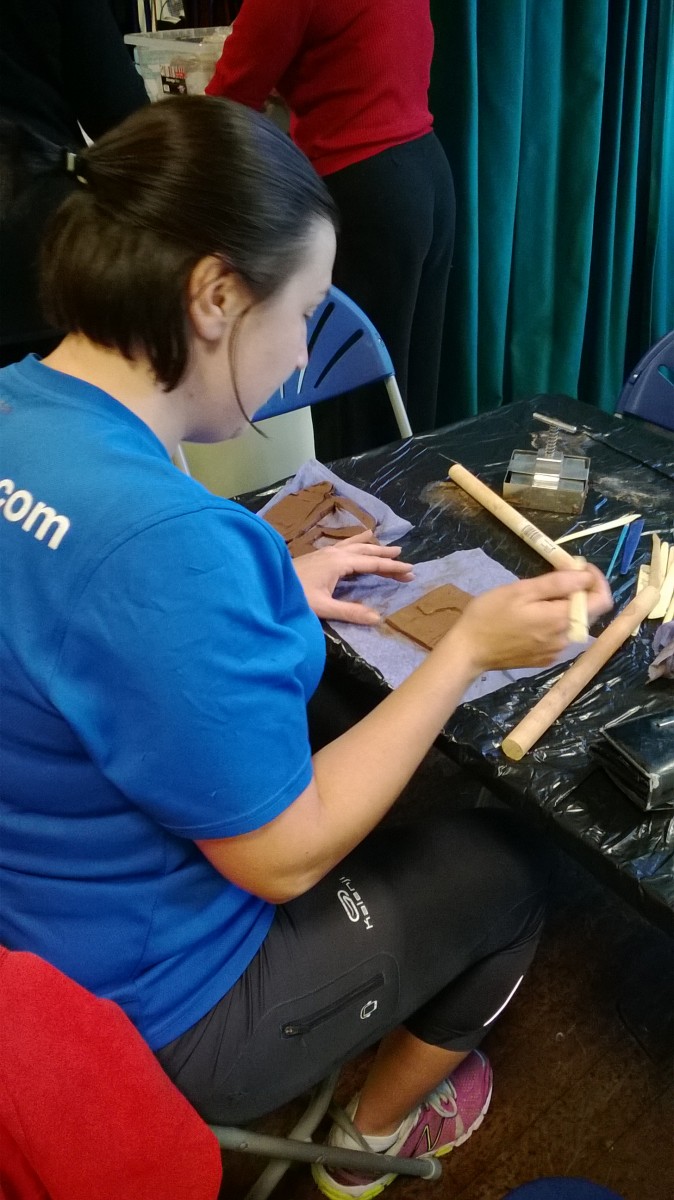 On 2nd of December, Claire Quigley, head teacher of Whitecross PS and her staff hosted an unusual celebratory event on the 60th anniversary of the opening of their school.
On 2nd of December, Claire Quigley, head teacher of Whitecross PS and her staff hosted an unusual celebratory event on the 60th anniversary of the opening of their school.
This involved visitors in making a terracotta clay tile which was personal to them. These will be dried, fired, and added to a tiled display in the foyer of the school. Every pupil in the school has already made their tile, and many were primed and ready to help their parents and guests make one too. Pupils from Graeme HS supported their primary colleagues in making their tiles, and Henry Meldrum, art teacher has fired them all. 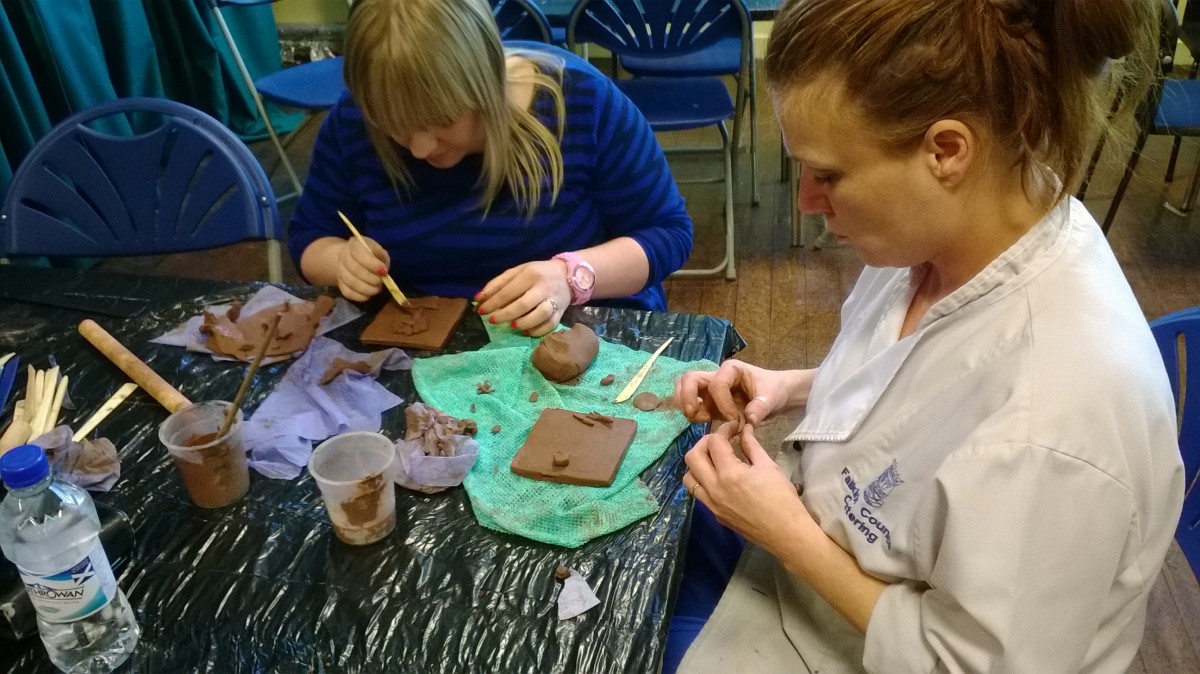
Visitors were taken into the school hall, and shown examples of the pupils’ tiles. Claire and colleagues demonstrated how to make the basic tile slab, then guests could decide how it should be decorated. Tony Bragg, team manager – performance management, and Eddie MacLennan, team manager – workforce development, joined in, and Yvonne McBlain, curriculum support officer, was delighted to make the “1955” date tiles which will be part of the commemorative display. 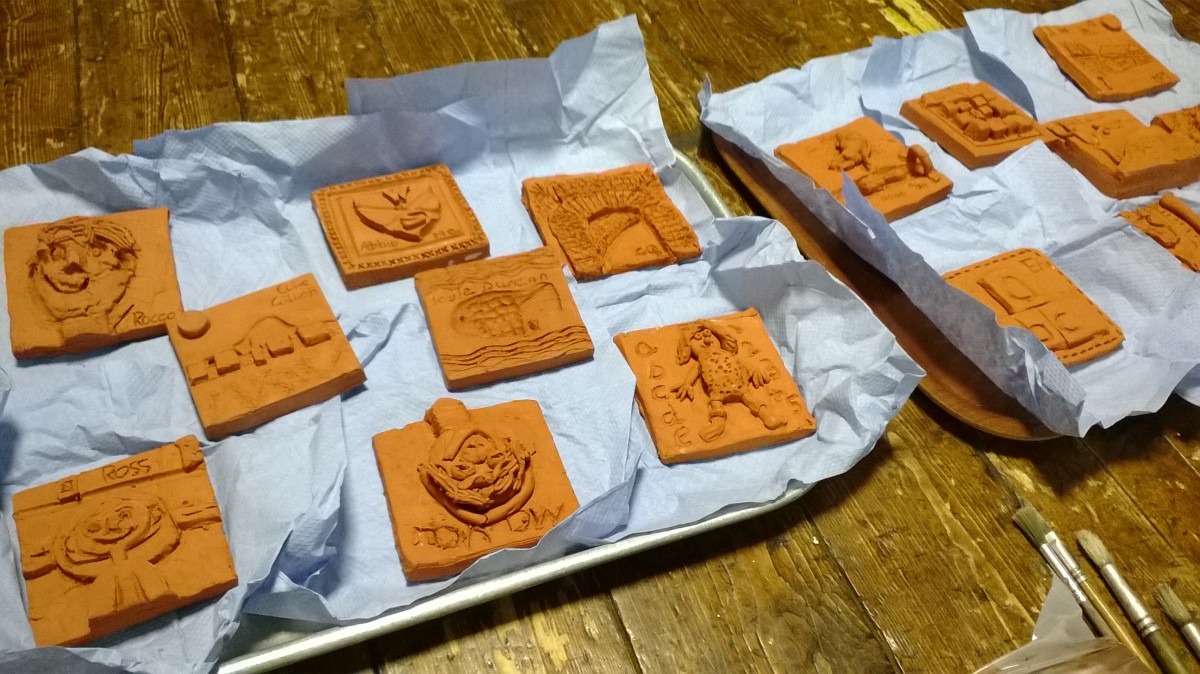
Jessie Dick came along and worked with her granddaughter Diane Balloch to make a tile. Both are former pupils of the school – Diane’s maiden name is Bryson, and her gran was known as Janet Reid, winner of the school dux medal in 1941-42. Jessie lives locally and enjoys return visits to the school, Diane said “It hasn’t really changed that much – the cloakrooms are gone – they’ve been made into classrooms now.” 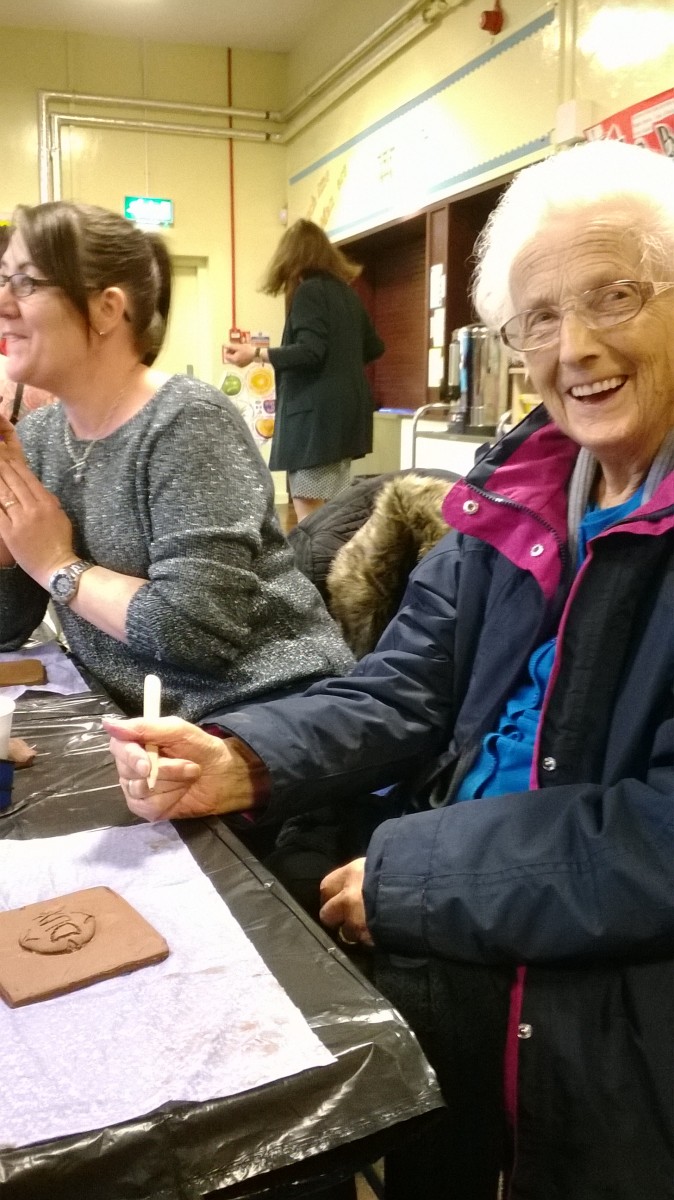
Claire, staff colleagues, and pupils, will host a formal launch event to unveil the tile display when installation is complete.
Postscript from Claire 15th December 2015:
We are sad to say that in the short time since this event Jessie Dick sadly passed away. Our thoughts are with her family.


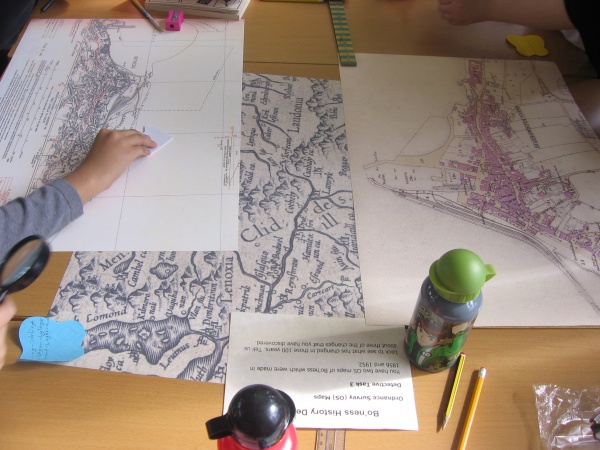
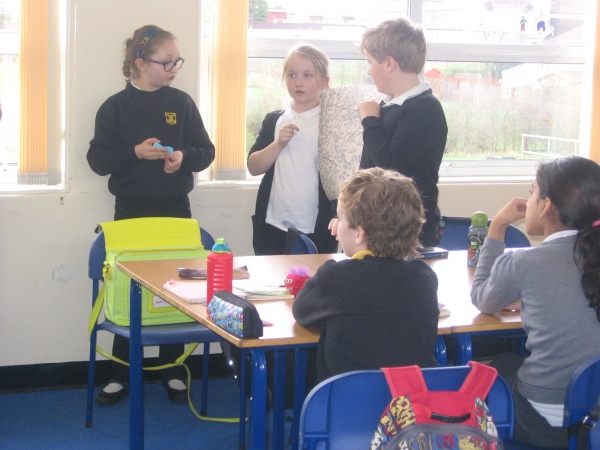

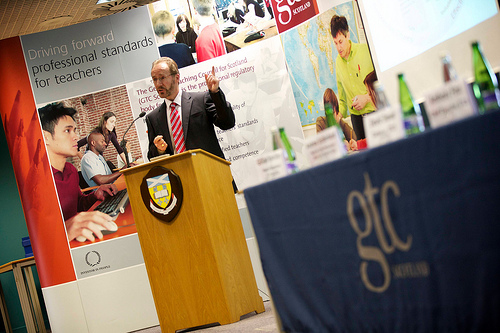





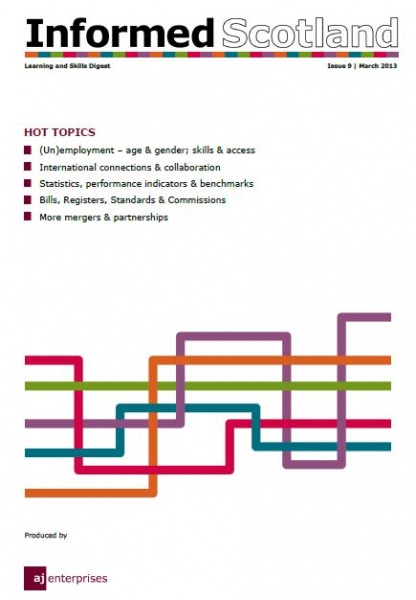 Informed Scotland – Issue 9 March 2013
Informed Scotland – Issue 9 March 2013